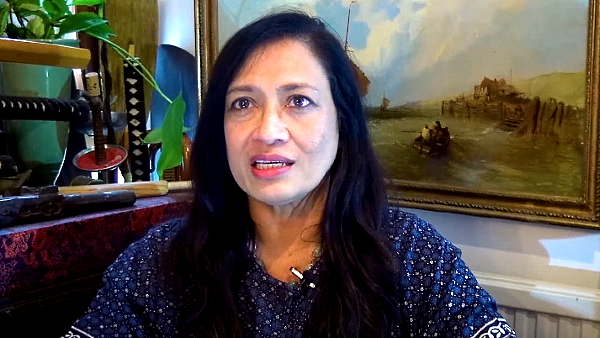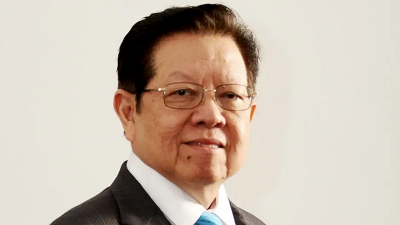
At a session with the Malaysian diaspora and students in New York, Prime Minister Anwar Ibrahim said his government would try to persuade skilled Malaysians to return and contribute to the development of the nation.
The International Trade and Industry Ministry, Economy Ministry and Higher Education Ministry were currently engaging Malaysians to be placed in specific areas of competence.
He expressed regret about the departure from Malaysia of top scholars, top economists, and top accountants, but was hopeful the incentives offered would encourage them to return.
If Anwar and his cabinet are not already aware, then they never will. Incentives alone are not enough to stem the brain drain.
Anwar, like most of his successors, have repeatedly said that they would like to stem the flow of talent from Malaysia, but they ignore one crucial fact. Anwar must act like he is the prime minister of Malaysia, not just the PM of 60% of the population.
Malaysia is multicultural, and non-Malays are an integral part of the nation. They are not pendatang, nor should they be treated as second-class citizens,. They should not be forced to face discrimination on a daily basis. Even the Malays are embarrassed by the shameful treatment of their fellow Malaysians.
Anwar and his cabinet know that it is not only the non-Malays who are part of the brain drain. Despite the affirmative action policies, Malays now increasingly form part of the brain drain, and many are reluctant to return to Malaysia.
TalentCorp, which was established in 2011, has failed to entice Malaysians to return. A few years ago, TalentCorp’s lack of success prompted the then CEO Johan Merican to express his frustration that despite the various incentives–including tax exemptions on cars that the applicants import into Malaysia–only 2,500 of the 1 million overseas Malaysians decided to return.
Johan and others may have cited financial considerations, professional opportunities and a comfortable lifestyle as the main reasons for Malaysians to prefer working overseas; but aren’t they ignoring the elephant in the room?
Financial rewards and the various tax incentives offered alone will not prompt the overseas Malaysians to return.
Those in government and in TalentCorp have stubbornly refused to acknowledge that our politics favors just one race.
Malaysians who left were appalled by racism, intolerance, and the increasing religious extremism.
They are also disgusted by corruption, nepotism, and cronyism. Malaysians would find it difficult to boycott the cronies as just about everything that the Malaysian eats, consumes or utilizes in the way of services, is owned by a Malaysian crony.
Anwar does not know that if one is not part of the establishment, or opposes the establishment, one will not get anywhere in Malaysia.
Security concerns and social justice are just as worrying as education. With the cost of living crisis, Malaysians have noted that crime is on the rise. They fear for their families and the communities they live in.
Malaysians who decide to work and live overseas have made hard and difficult decisions.
Sense of family among Malaysians is strong. Why would anyone want to leave their parents behind or be separated from other members of their families? Malaysia’s divisive policies have forced many families apart and they are now scattered all over the world.
Malaysians who have been encouraged by their parents to seek their fortunes and find opportunities abroad because of discrimination, find it hard to accept that their elderly parents will be forced to cope on their own as they get older.
More importantly, Malaysians who leave for greener pastures may eventually start their own families. If they were to return, they would wonder if they would deny their own children a decent education among other things.
Look at the appalling state of our education. Crucial STEM subjects have less emphasis than religious subjects. Not everyone who returns can afford the costly international schools. Non-Malays have thus far found it difficult to get scholarships, and places in public universities are limited.
Race and religion have spoiled it for many Malaysians. On top of that, some teachers even think that speaking English is unpatriotic. Until and unless the mindset of some Malaysians is changed, why would any of the people in the brain drain bother to return?
Malaysians find that their lives are increasingly being scrutinized by the authorities. Even Muslims object to the invasion of privacy and moral policing.
Children of Malaysians who finally return will find it hard to accept the lack of meritocracy and how quotas will feature in their lives. Whom they make friends with, what they wear, what they eat and drink, where they go to socialize with members of the opposite sex or with members of other races, will be constantly monitored.
Uppermost in the minds of the people who left is the memory of why they were once forced to leave, and if things have improved for the better.
Politicians like Anwar and his cabinet need to understand that financial rewards and the various tax incentives offered alone will not prompt the overseas Malaysians to return.

(Mariam Mokhtar is a Freelance Writer.)
ADVERTISEMENT
ADVERTISEMENT








































